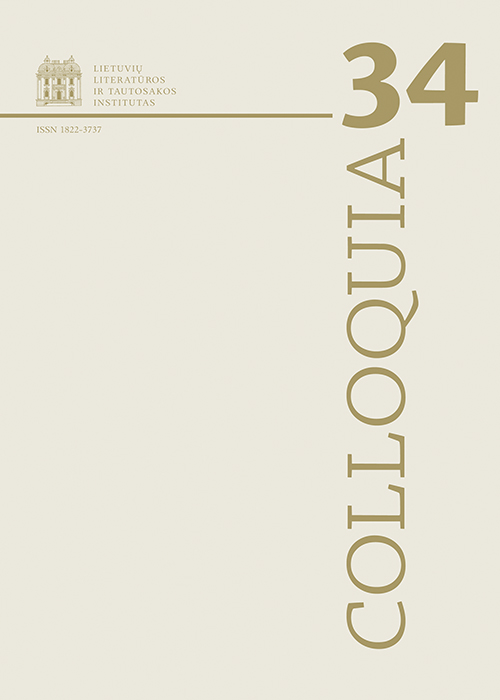Censorship of Public Lithuanian Theatre Evenings in Late Nineteenth and Early Twentieth Century Imperial Russia
Abstract
The goal of this article is to examine the censorship of public Lithuanian theatre evening repertoires under imperial Russian rule in the late nineteenth and early twentieth centuries. The author offers a short history of theatre censorship in imperial Russia and identifies the general principles that guided state censors. Drawing on archival material, she reconstructs how the repertoires of public Lithuanian theatre evenings was censored. She examines specific edits that have been preserved in copies of censored plays and compares banned and approved plays, identifying specific requirements that were made of Lithuanian playwrights: state censorship prohibited the expression of nationalist aspirations in any form, and the performance of any works that portrayed the Russian people in a negative light.
Lithuanian works were censored somewhat more lightly than Russian plays of the same period, particularly after the Revolution of 1905. This loosening of censorship reflects the general tendencies of softening censorship, a process to which Eduard Volter, a censor who was sympathetic to the Lithuanian nationalist movement, contributed. Volter viewed Lithuanian historical dramas in formal terms and did not withold permits for performances of plays that might inspire patriotic feelings.
The author of the article comes to the conclusion that theatre censorship during this period was ineffective: it does not appear to have had a significant effect on Lithuanian playwrights, as censorship guidelines were not applied to the texts of published dramatic works. This was a result of Lithuania’s particular, northwestern situation. Because of imperial Russia’s ban on Lithuanian-language publications, most earlier plays had been printed outside of the Russian Empire; moreover, the organizers of public Lithuanian theatre evenings had the experience and alternative of holding secret Lithuanian events prior to 1904. In the Lithuanian consciousness, because the organization of Lithuanian theatre evenings was associated with a stance of defying official policy, censorship rules were not always adhered to. While censorship sought to control Lithuanian theatre evenings repertoires, it ultimately reinforced the politicization of Lithuanian theatregoers.
Downloads
Most read articles in this journal
- Birutė Avižinienė, Literature and Its Authors in the Interwar Lithuanian Radio Programs , Colloquia: Vol. 46 (2021)




